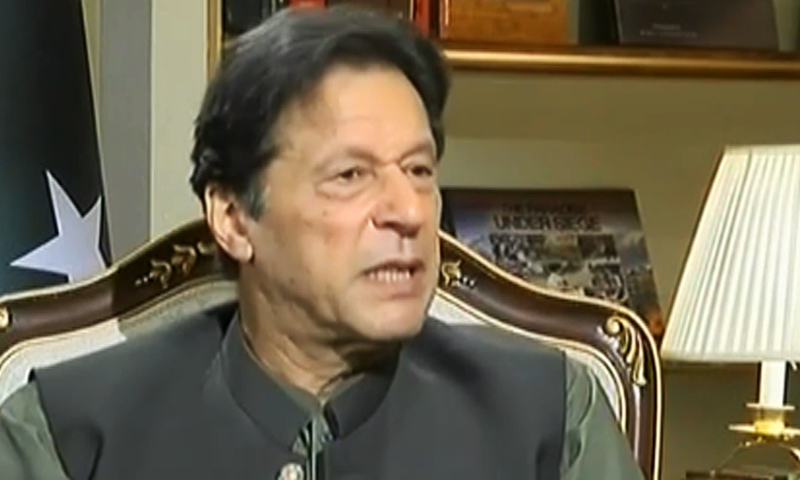Last 2 years were my biggest struggle as I tried to steer Pakistan towards becoming a welfare state: PM Imran

Prime Minister Imran Khan on Tuesday said that the last two years of his life were the toughest, despite having struggled all his life, as the country was facing challenges from all fronts.
The premier expressed these views during an interview with senior journalist Kamran Khan on the show 'Dunya Kamran Khan Kay Sath' aired on Dunya News as the PTI completed its two years in power.
"My entire life has been a struggle," he said, talking about his decision to become a cricketer early on and to later set up the Shaukat Khanum Memorial Cancer Hospital. "Politics was the biggest struggle."
But when you keep at it continuously, you learn how to do it, he said. "You no longer fear ups and downs. What happens is that when people don't struggle for something, they become worried when there are ups and downs."
So many people made political parties, but I think they gave up during bad times, he said. "Because I had an idea, I was constantly learning and getting back up on my feet."
These two years were the biggest struggle yet, because there were several challenges, the premier said. "The country's economy had crashed, we were defaulting on payments, we didn't have money to pay our debts [...] departments had collapsed and government corporations were in debt.
"There was no one place to concentrate on," he said, adding that this was a learning experience.
So in the first two years, we understood the challenges the country was facing and then I tried to change its path towards what it was originally made for, a welfare state, he said.
"Today if you ask me what I have tried to do, I will say I have tried to put the country on the path to becoming a welfare state. If we want to progress, we have to go back to that model."
He stated that Pakistan had an "elite capture", where a small minority had access to facilities and were taking advantage of the system.
"They think think have a privileged position and are above the law. If you think about it, in the past two years, steps were taken for the very first time to bring them under the law."
'I was attacked on Covid-19 response'
Commenting on the country's success in controlling the coronavirus pandemic, the premier stated that he had always thought about the poor and the vulnerable segment of society when told to impose a lockdown to curb the spread of the illness.
"I was attacked, saying that I don't understand and am ruining the country but the lowest segment of society should be your priority," he said, adding that he was being told to impose a total lockdown by the opposition and by certain members of his own party.
"But our conditions were not like that of Italy and Spain. What would we have done about the common man, the labourers, the six to seven people living in one room if we imposed a lockdown? That is why I resisted," he said.
The premier also said that India was now suffering the effects of imposing a total lockdown, as their cases were increasing. "They didn't think about the poor.
"Bill Gates said to me that we want to study [Pakistan's trajectory]," he added.
Karachi's woes
When asked about the sorry state of affairs in Karachi, the premier said that the people of the city have suffered and so has the country as a consequence.
"It is Pakistan's economic engine," he said, adding that the lack of a local government system has contributed majorly to the metropolis' issues.
"Big cities have their own set up and they take their own responsibility." There needs to be a local government system in Sindh, he said.
He added that the Centre was doing all that was possible and the people of the city would see improvement in the near future.













































